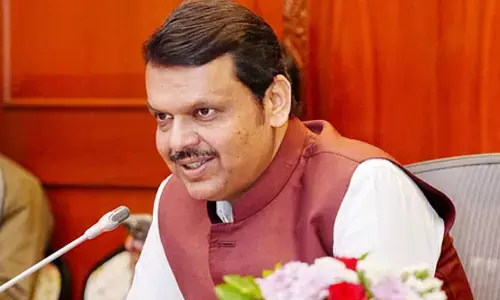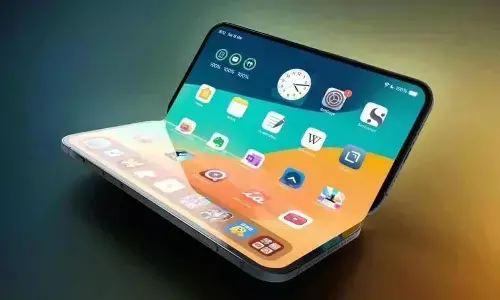International E-waste Day 2022 - "Inefficient handling of E-waste has long-lasting ill effects on the planet," Ravi Neeladri, CEO - Cerebra Green

Ravi Neeladri, CEO of Cerebra Green
International E-waste Day 2022 - Unless the entire E-waste management chain is channelised properly; we will face major environmental destruction very soon.
International E-waste Day has been observed on 14th October every year since 2018. Founded by the WEEE (waste electrical and electronic equipment) Forum, this day raises awareness to tackle the new generational E-waste challenge. On this occasion, we play a crucial role in moving towards a circular economy for sustainable living conditions.
Today, on the occasion of International E-waste Day, Ravi Neeladri, CEO of Cerebra Green, shared inputs about the E-waste management industry in India and how the government is taking increased measures for better E-waste management in the country.
The UN has estimated that this year alone, more than 22 million tonnes of E-waste from small electrical items will be produced worldwide. They are often discarded, landfilled or incinerated – meaning that raw materials cannot be extracted and are thereby lost. 2022 is the fifth edition of International E-waste Day, and this year's focus will be on small electronics like toothbrushes, cameras or even toasters. They can be used in producing new devices when disposed of the right way. This year's theme is in line with its slogan, "Recycle it all, no matter how small!"
Please give some insight into the E-waste management sector in India.
India is currently the third largest contributor of E-waste, having moved from the fifth position in just three years. Unfortunately, the awareness of E-waste in India is at a very nascent stage. The public still does not understand the hazards of E-waste and the ill effects of mishandling the same. And we will continue to witness a rapid generation of electronics waste as the country strives to become a digital economy. The digitalisation of every sphere of life will only add more electronic waste generation. There is a need to educate the producers and consumers of electronic goods and establish stringent regulatory policies in the country.
This scenario is slowly changing with the government's initiatives to regulate the E-waste sector better. Many players like us in the formal sector are working towards increasing awareness and establishing a proper channel for sustainable E-waste management.
What steps is the government taking to change the E-waste management industry?
The Ministry of Environment and Forests (MoEF) issued a set of rules known as E-waste Management and Handling Rules in 2011 to regulate E-waste management in the country, to which revisions were made in 2016 and 2018. This year, MOEF, in a positive step, issued a draft set of E-waste rules. The new rules cover many gaps in the current E-waste rules, and implementing these rules will significantly improve our ecosystems. The new draft of E-waste rules try to simplify the number of stakeholders in the ecosystem and set guidelines for environmental compensation and prosecution, which is missing in the current E-waste rules. As a step to better manage E-waste, the rules include many more electronic items under the extended producer responsibility, like electric cookers, microwaves, electric heating equipment, vacuum cleaners, irons, grinders, medical devices, etc., which were previously not considered. In addition, the jurisdiction for E-waste management is proposed to move from a regional to a central pollution control board.
What are the OEMs in India doing to improve E-waste management in India?
OEMs in India are actively engaged in addressing E-waste management. All of them are involved in promoting awareness through their websites, interactions with RWAs, holding webinars, supporting events etc. Most of them have dedicated support to help customers to dispose of their E-waste.
How does Cerebra Green work with OEMs and consumers?
Extended Producer Responsibility (EPR) is a policy that is followed globally that ensures that the producers and manufacturers of electrical & electronics collect a percentage of the products that they have manufactured after the products reach the end of their life. In each country, the end of life has been defined for all electrical and electronic products; for example, a laptop has five years of average life, and a refrigerator has ten years of life. This obligation of collecting and recycling the products is covered under EPR, and an annual collection target is assigned to the producers/manufacturers. Since the OEMs do not have the authorisation to collect and recycle the products that have reached the end of their life, Cerebra Green undertakes the commitment of recycling these products and helps the OEMs meet their annual targets under the EPR obligation.
We have established 28 collection centres across the country, wherein consumers can drop their used devices. These devices are recycled if they have met their end-of-life term or refurbished for further use.
Share your thoughts on this International E-waste day
Improper disposal of E-waste affects the soil, air and water. Inefficient handling of E-waste has long-lasting ill effects on the planet. As social, living and economic behaviour is increasingly moving towards digitisation, the demand for electronics is on the rise, now more than ever. Unless the entire E-waste management chain is channelised properly, we will face major environmental destruction very soon. All the stakeholders in the chain have to work towards proper E-waste management. Creating awareness among all stakeholders is crucial. It is important to introduce education about E-waste management in schools as well so that the future generation follows responsible and sustainable ways of living.

















